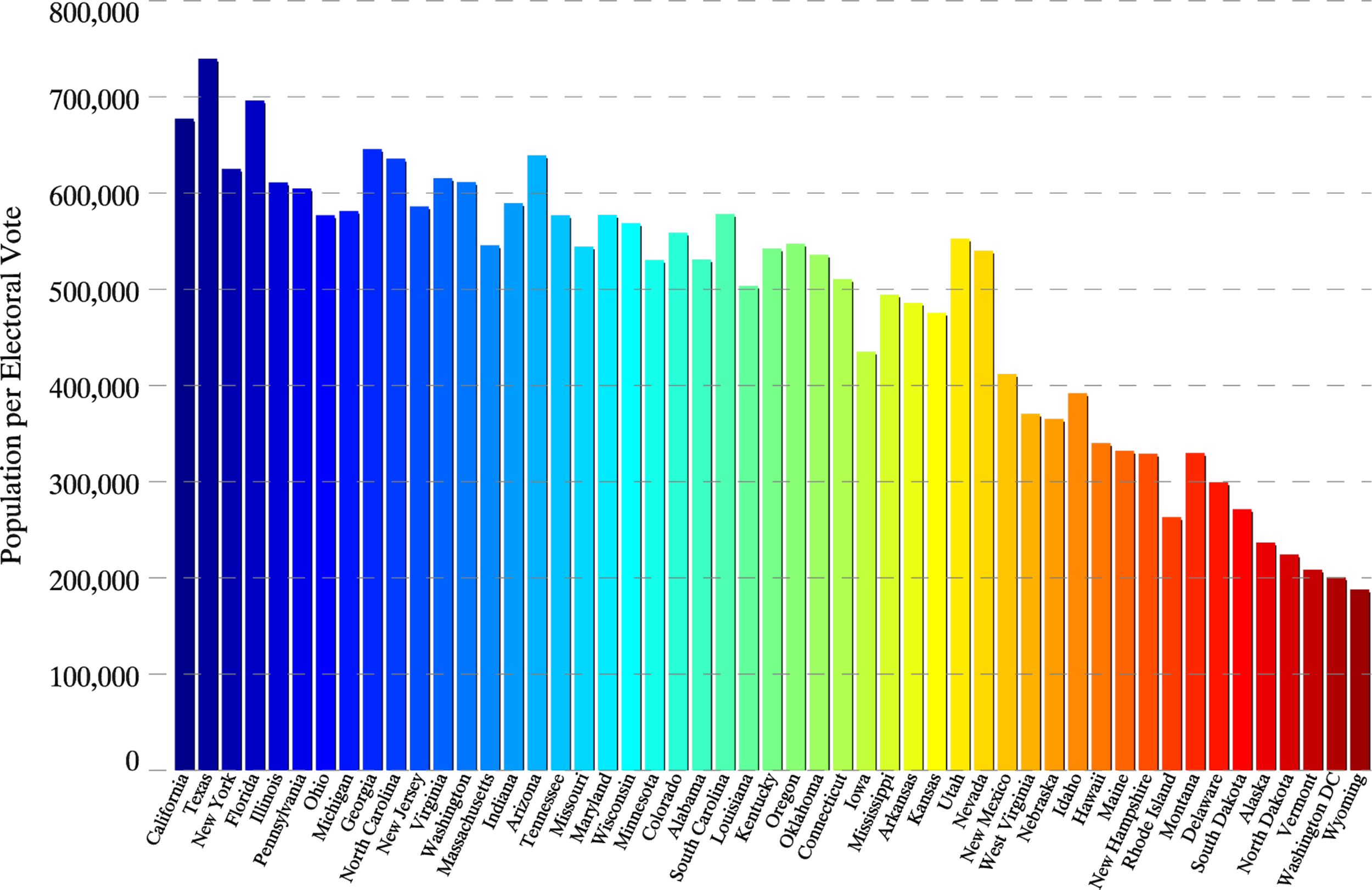“He was elected by the American people as president to carry out border security and build a wall,” Minority Whip Steve Scalise (R-La.) said. “It was part of the national debate. I know some people on your side don’t even want to recognize that that election occurred and the result. But it happened.”
Not to be picky, but presidents are not really elected by “the American people.” They are elected by a tiny fraction of the American people who by accident happen to live in swing states.
Presidential candidates ignore more than 80% of the people. These happen to live where the statewide plurality winner in the general election is certain in advance of the vote.
Donald Trump supports the principle that the winner of the national popular vote should always be president. That is because the consent of all the governed is necessary if the president is going to stand tall on an issue like, in his case, the wall.
Trump supporters should agree with the president that the national popular vote ought to lead to the election of the president precisely because they should want their president to be empowered by that vote to take stands against a fractured Congress.


